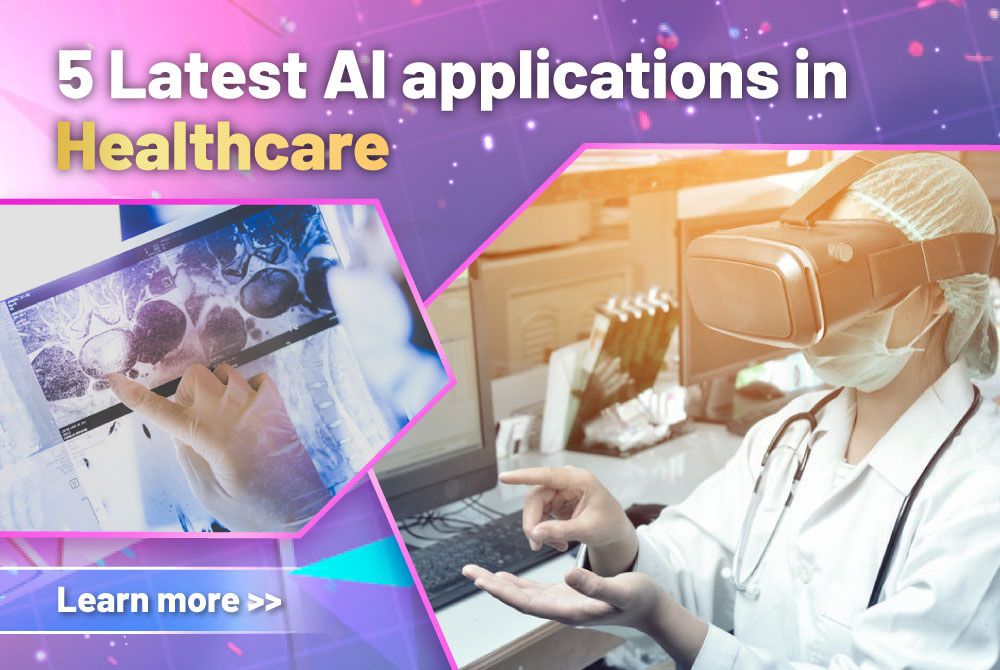AI & Robotics
Top 5 AI Applications in Healthcare

The integration of artificial intelligence (AI) into healthcare in recent years has completely changed the way we approach patient care, medical diagnosis, and treatment. AI has revolutionized medicine by its ability to analyze massive amounts of data, identify patterns, and make accurate predictions. Let's dive into the future of healthcare and explore the top five AI applications that are reshaping medicine, from medical imaging to smart nursing.
1. AI-assisted Endoscopy & 5G Remote Consultation
Endoscopy processes are being transformed by AI, which provides real-time advice and analysis during tests. AI algorithms can assist in identifying anomalies, directing the endoscopist, and enhancing diagnostic precision by examining endoscopic pictures and recordings. AI and 5G technologies also offer remote consultations, which provide access to specialist treatment by allowing experts to give advice and judgments on endoscopic procedures in real-time from a different place.
2. AI Medical Image Analysis
AI is transforming medical imaging by enabling better analysis of radiological images such as X-rays, MRIs, and CT scans. Radiologists can diagnose diseases early on with the use of AI algorithms that can spot patterns, spot abnormalities, and recognize trends. The efficiency, accuracy, and aid in prioritising critical cases given by this technology ultimately result in better patient outcomes as well as improved treatment planning.
3. Smart Nursing Management
Smart nursing solutions powered by AI streamline workflows and enhance interprofessional communication to enhance patient care. These products use AI algorithms to track patient vital signs, spot changes in health, and alert nursing staff in real-time. Smart nursing management systems improve patient safety, minimize errors, and strengthen overall healthcare delivery by automating routine duties and enabling proactive care.
4. RTLS Patient & Asset Tracking
AI-powered Real-Time Location Systems (RTLS) provide accurate tracking and management of patients and medical equipment within healthcare facilities. To track patient movements, expedite workflows, and improve resource usage, AI algorithms evaluate data from sensors and wearable technology. RTLS systems optimise patient flow, cut down on wait times, prevent medical equipment loss, and provide a more effective and patient-centred healthcare environment.
5. Drug Discovery and Development
By expediting research and raising success rates, AI has altered the process of medication discovery and development. To identify prospective therapeutic targets, predicting medication efficacy, and streamlining treatment plans, AI systems investigate enormous volumes of biological data, including genomes, proteomics, and clinical trial data. This technique hastens the discovery and creation of novel medications, resulting in more potent therapies and better patient care.
Our AI Solutions
HKT's AI robotic technologies are revolutionising the healthcare landscape by enhancing patient care, optimising processes, and enabling remote monitoring. With advanced robotic assistants and AI-driven automation, HKT empowers medical staff to deliver effective, high-quality treatment. By adopting HKT's AI robotics solutions, healthcare institutions can transform their practices and achieve improved patient outcomes. The integration of HKT's cutting-edge technologies signifies a significant leap forward in the evolution of healthcare delivery.